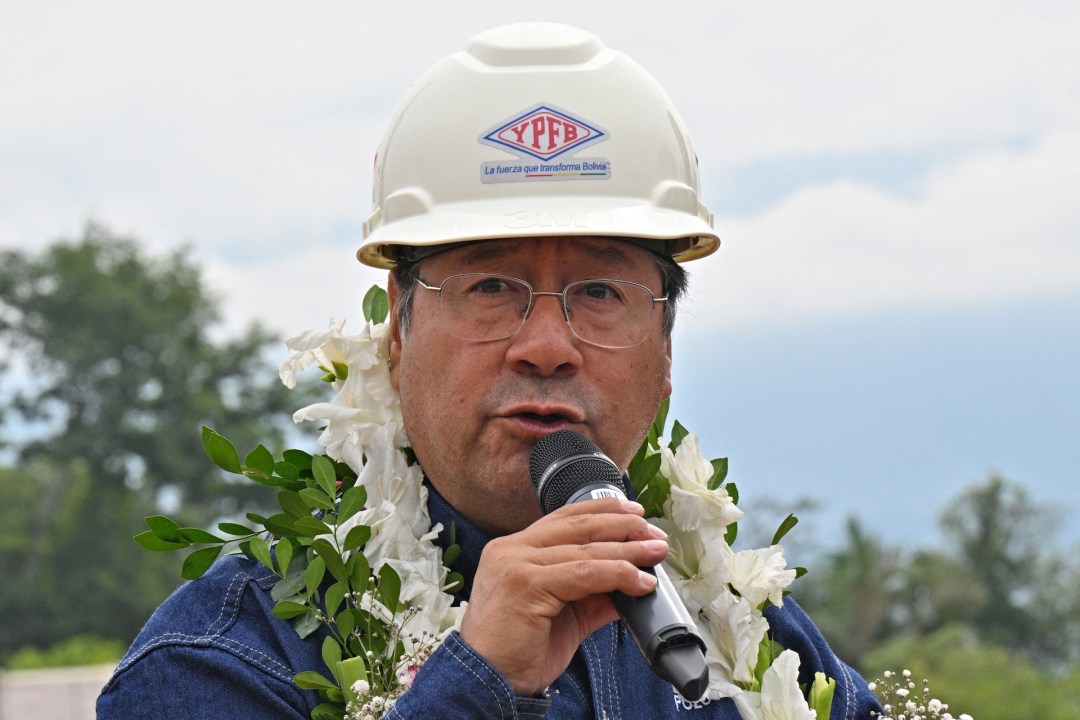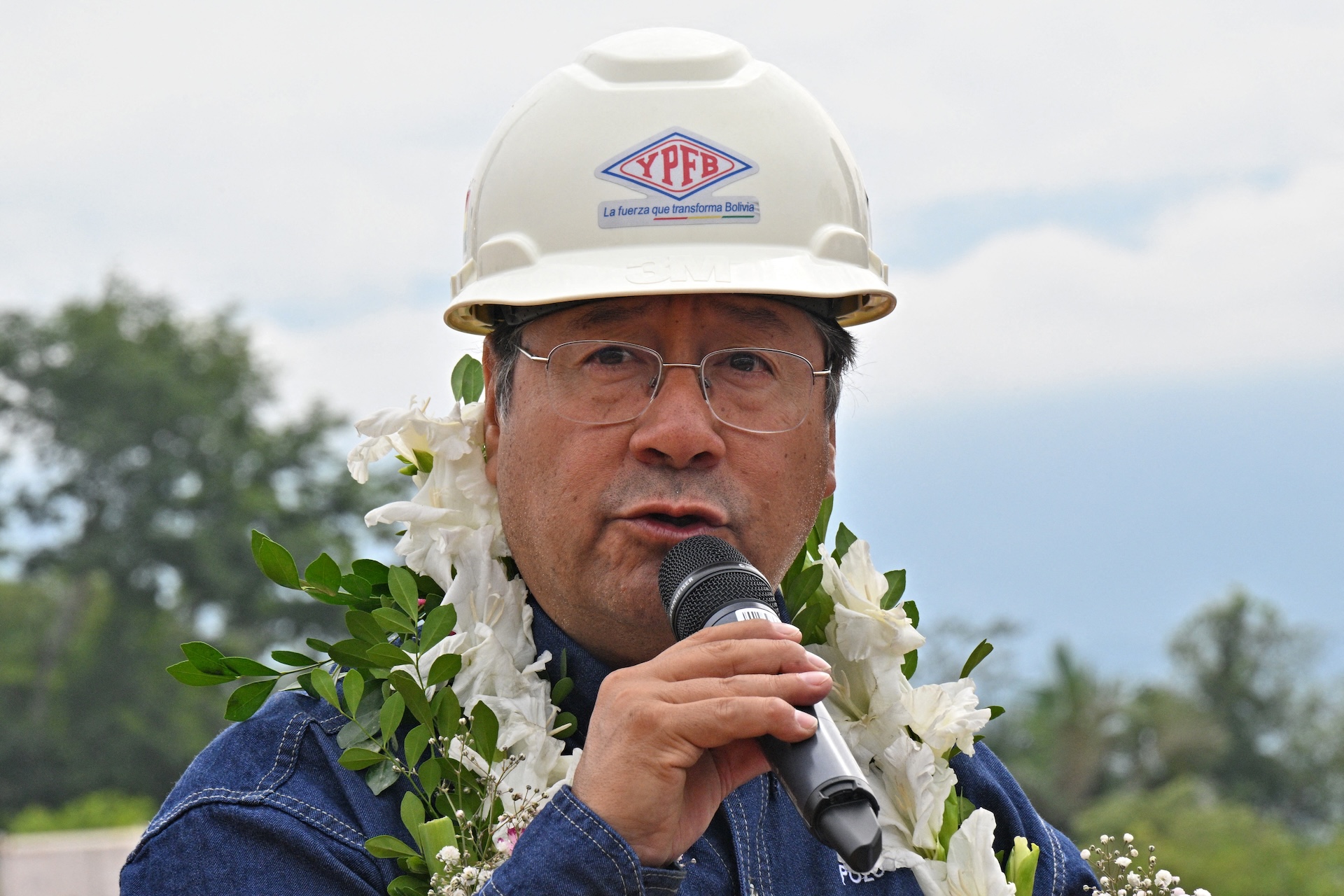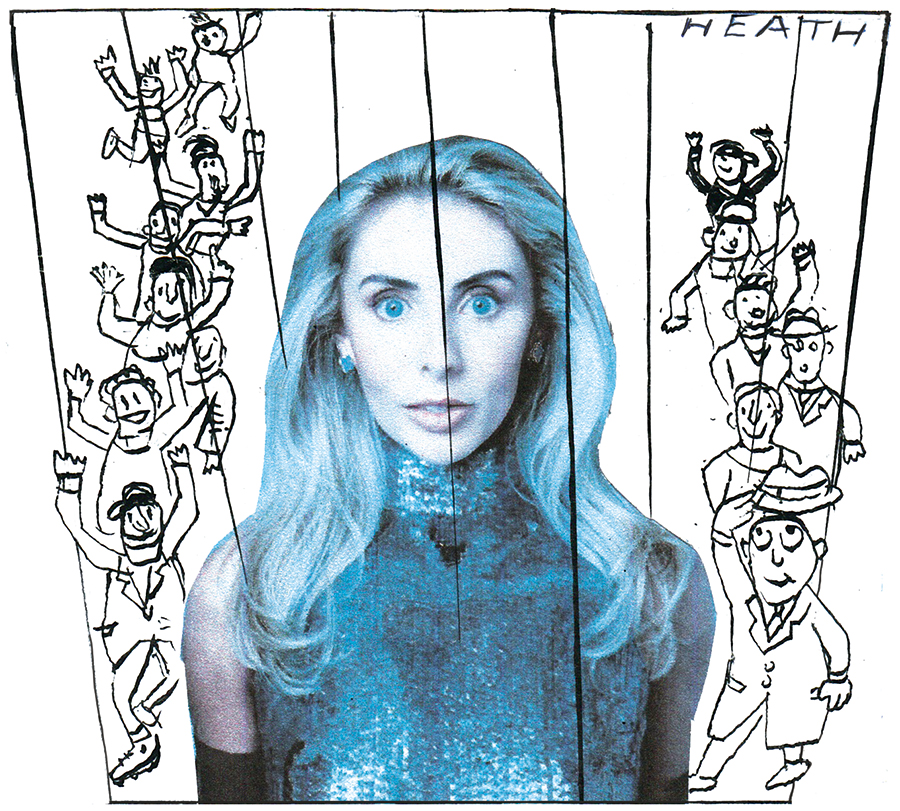‘Some of them will have been waiting for two days.’ My taxi driver was pointing at a queue of lorries, vans and cars stretching essentially the entire length of Villazon, a small town on Bolivia’s border with Argentina. At the front of the queue? A petrol station.
Bolivia is in the grip of a severe fuel crisis. Bolivia has traditionally been heavily reliant on natural gas exports, but a collapse in production after years of government neglect has sparked shortages, causing the long queues at petrol stations. The country, the only landlocked nation in South America, and also one of the poorest, is currently importing substantial amounts of fuel. The drop in exports has also seen reserves of foreign currencies dry up, putting further pressure on government finances.
President Luis Arce has tried to turn the tide, but his proposed fixes have become steadily more desperate. What started with a straightforward change in energy minister in August last year progressed in March to a decision to try to pay for gas imports with cryptocurrency thanks to the shortage of dollars. The government has also reduced in-person schooling and ruled out lunch breaks for public servants to reduce traffic and car use.
Ordinary Bolivians, meanwhile, are trying to deal with the country’s worst inflation in decades. Earlier this month, Angelica Zapata, a homemaker in La Paz, told Reuters that the $15 that used to be able to feed her family for a week now barely lasts three days. ‘Everything is so expensive, there’s no money left,’ she said. Bolivia has enjoyed very low levels of inflation for the past 10 years, but food prices are now up by 17 per cent. In the Zapata household, the family is now getting by on just one meal a day.
Just this week, thousands of miners wearing hard hats took to the streets of La Paz to protest, bringing the city to a standstill. The mining industry has been hit by the shortage of diesel and also the soaring price of explosives used to break rocks. The union which organised the march has demanded a cap on explosive prices and promised more radical action if the president fails to listen.
All of this is likely to come to a head in time for August’s election, with Arce facing punishment in the polls if things do not improve. The situation has not been helped by political instability. Bolivian politics has been dominated for decades by Evo Morales. Morales was described as Bolivia’s first indigenous president when he first came to power in 2006 and has been wildly popular at times for his championing of indigenous rights and help for the poor. He has also been criticised by democracy advocates for his refusal to accept term limits and attempts to run for re-election.
Morales and Arce were once close allies, but the indigenous leader is locked in a face-off with the state over an allegation of rape connected to his alleged relationship with a 15-year-old girl. The announcement of the investigation led to large protests and his supporters briefly seizing control of a military barracks in November. A warrant has been issued for his arrest. He has called the accusations politically motivated and a ‘lie’.
Just four months out from the election, Bolivian politics remains highly fractured. Last week, 14 political parties registered their intention to run a candidate on 17 August. Parties’ chosen candidates will be announced on 18 May. The ruling Movement Toward Socialism party intends to nominate Arce despite his troubles as president. But two other leftist parties plan to run, potentially splitting the vote.
Bolivia’s opposition will also be eyeing up its best chance of victory for many years
One of those two nominees is likely to be Andronico Rodriguez, the young leader of the senate who is seen as a political heir to Morales. In a sign of the ongoing popularity of the former president, Rodriguez has been polling first in opinion polls, but only in those that do not include Morales. The 35-year-old has been a close ally of Morales as his right-hand man in the coca growers union movement, but is now appearing to defy his mentor who has pressured him not to run. Rodriguez has so far kept his cards close to his chest, perhaps in an effort not to upset those in the Morales-dominated leftist movement, but he is understood to be more moderate than his predecessor.
Amid the political chaos, Bolivia’s opposition will also be eyeing up its best chance of victory for many years. Among the candidates are Jorge Quiroga, who himself served as president for a year in 2001 and has twice lost to Morales in elections in 2005 and 2014. He has promised to ‘privatise everything’. Businessman Samuel Doria Medina has made gas subsidies central to his offer to the people, while Manfred Reyes Villa, a regional mayor, has promised to solve the dollar shortage within 100 days.
The right-wing movement in the traditionally socialist country does not have to look very far for an example of how it can win. Javier Milei, now celebrating more than a year as president of southern neighbour Argentina, also took power of an economy teetering on collapse with a populist, anti-establishment message and a drastically different vision for the economy. Bolivia’s electoral hopefuls would be wise to take note.








Comments